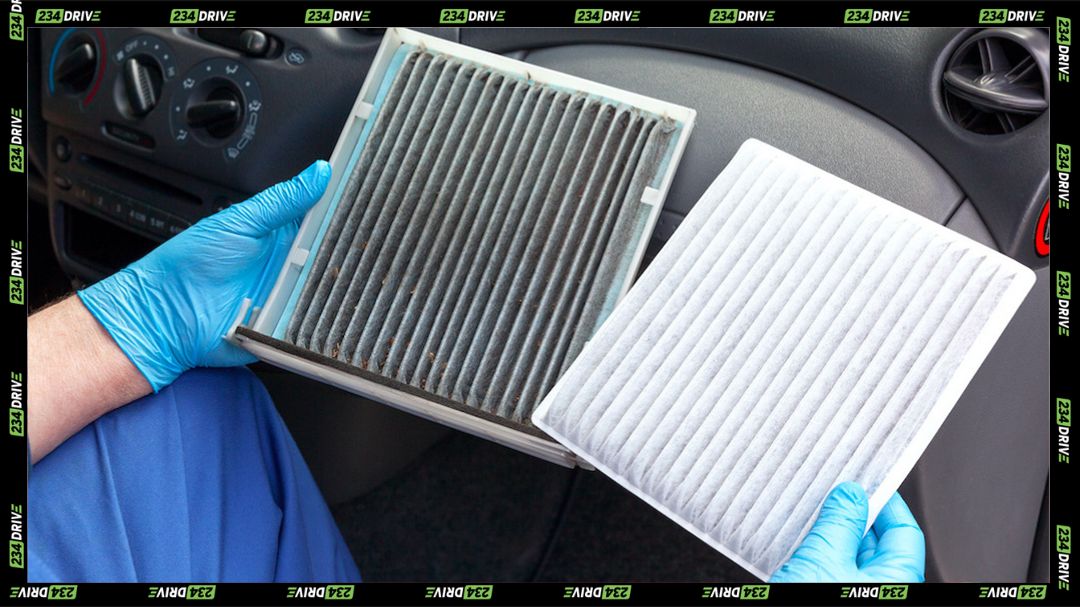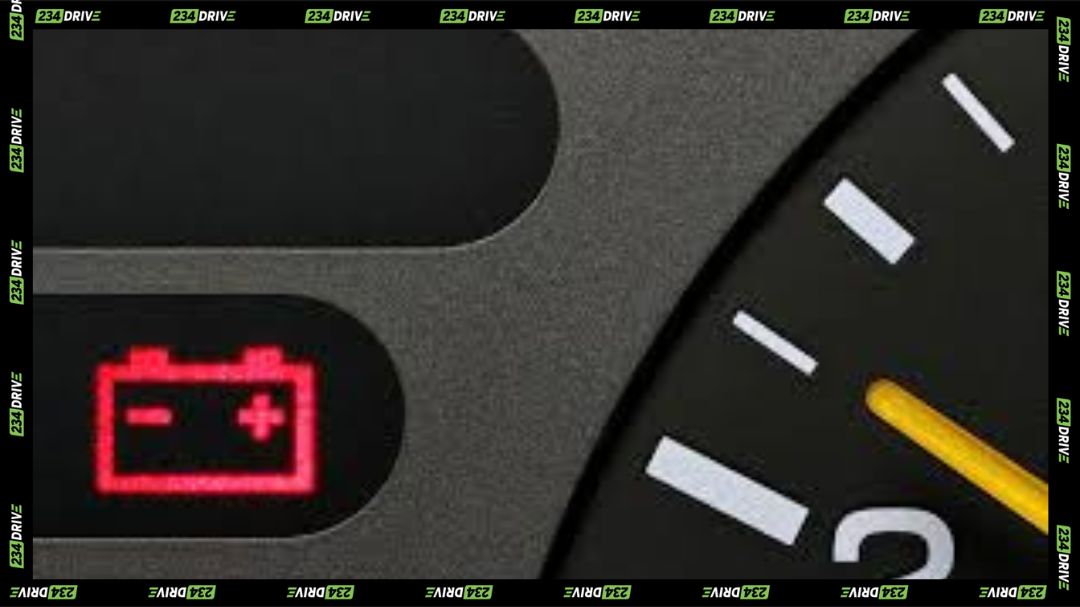Harmattan is a yearly reality for drivers across Nigeria. From late November through March, the dry, dusty winds from the Sahara blanket cities and villages in a fine layer of dust. Cars bear the brunt of this weather, facing the harsh effects of dust, dry air, and extreme temperature changes. Over time, these conditions cause paint to fade, wipers to weaken, and engines to strain under clogged filters if not properly maintained.
This season demands special attention from car owners. Keeping your car in top condition during Harmattan involves a combination of preventive care and consistent maintenance. From upgrading your wiper blades and checking air filters to protecting your paintwork and tyres, every part of your vehicle needs extra care.
Understanding Harmattan’s Impact on Vehicles
Harmattan isn’t just about dust; it’s an environmental cocktail that challenges every part of your vehicle. The season brings low humidity, reduced visibility, and fine particles that find their way into every crevice.
- Reduced visibility: Dust in the air blurs windshields and headlights, making driving riskier, especially during early mornings or late evenings.
- Mechanical wear: Dust clogs air filters, reducing airflow and engine efficiency. This can raise fuel consumption by 10–15% if left unchecked.
- Dry air damage: The dry atmosphere dehydrates rubber and plastic components, leading to cracks in dashboards, leather seats, and seals.
- Temperature fluctuations: Nights are cold, days are hot. These changes stress batteries, tyres, and engine components.
Harmattan is more severe in the northern parts of Nigeria—Kano, Kaduna, Abuja—where the winds blow stronger and dust lingers longer. In the south, like Lagos or Port Harcourt, it’s milder but still enough to cause issues for car owners.
Essential Car Care Tips During Harmattan
Protecting your car isn’t complicated—it just requires consistency and awareness. These are the key maintenance steps every driver should take during the season:
1. Replace or Clean Air Filters Frequently
The dusty air clogs your car’s engine and cabin air filters quickly. When the filters get blocked, your engine struggles to draw in clean air, forcing it to burn more fuel and perform below standard. The cabin filter, which keeps the air inside your car fresh, also gets congested and can lower the quality of air you breathe inside the vehicle. For people living in areas where dust is a daily challenge, maintaining clean filters should be a top priority.

Check your filters every two weeks and replace them every month or two during the height of Harmattan. Dirty filters can increase fuel consumption by up to 15% and cause poor acceleration. A quick inspection and timely replacement will ensure your car runs efficiently and helps you avoid unnecessary mechanical issues.
2. Upgrade to Harmattan-Grade Wiper Blades
Wiper blades face a tough battle against the constant dust and dryness of Harmattan. As dust accumulates, the rubber on standard wipers hardens and starts leaving streaks on your windshield. Investing in harmattan-grade or all-weather wipers made of silicone or durable rubber ensures clear visibility even in dusty conditions.
Clean the blades weekly with a damp cloth and replace them if they start streaking. Keep washer fluid in your car for emergency cleaning. These simple actions will prevent dust buildup, improve visibility, and reduce the risk of accidents.
3. Wash and Wax Regularly
Dust settles fast on car surfaces during Harmattan, and when not cleaned off properly, it can cause scratches and dull the paint. Washing your car weekly removes abrasive particles before they can damage the surface. Applying wax after every wash creates a protective layer that shields the paint from dust and UV rays.
Avoid wiping your car dry as it spreads dust and can scratch the paint. Use a soft microfibre towel instead. If you park outside, consider covering your vehicle with a car cover to minimise dust accumulation. These practices will keep your car looking clean and protect the paint’s longevity.
4. Protect the Interior
The dry Harmattan air can be as harsh on your car’s interior as it is on the exterior. Leather seats and dashboards can dry out, crack, and fade under prolonged exposure to heat. To prevent this, use quality leather conditioners or interior moisturisers regularly. Parking under the shade or using a sunshade also reduces direct exposure to UV rays.
Keep the windows closed and use the car’s air recirculation mode to limit dust entering the cabin. Vacuum fabric seats frequently to remove settled dust particles. This regular upkeep preserves both the comfort and aesthetics of your car’s interior.
5. Check and Maintain Tyre Pressure
During Harmattan, temperature fluctuations between cool mornings and hot afternoons can cause tyre pressure to drop. Driving with underinflated tyres not only increases fuel consumption but also causes uneven wear and potential blowouts. Always check your tyre pressure weekly when tyres are cold and inflate them to the recommended levels stated in your car manual.
Proper tyre pressure ensures good road grip and stability. Consistent monitoring helps you avoid unnecessary tyre damage and promotes safer driving, especially on Nigeria’s rougher roads.
6. Keep an Eye on Engine Oil and Cooling Systems
Dusty air can contaminate engine oil and reduce its effectiveness as a lubricant. This contamination can cause friction and overheating, leading to costly engine wear. Change your oil every 3,000 to 5,000 kilometres during Harmattan to maintain smooth performance. Additionally, inspect your radiator and coolant levels weekly to prevent overheating.
Make sure the air intake system is clean and free of debris. Regular oil changes and cooling system checks will extend your engine’s life and improve overall reliability, even in challenging conditions.
7. Test Your Battery
Cold mornings combined with dry, dusty air can quickly weaken your car’s battery. A low battery charge makes it difficult to start your engine, especially when temperatures dip. Test your battery voltage monthly and clean the terminals to ensure strong connections.

Routine checks prevent unexpected breakdowns and extend battery life. A well-maintained battery ensures your car starts smoothly every time, regardless of how harsh the Harmattan gets.
Regional Differences: North vs South Nigeria
The intensity of Harmattan varies by region, so your maintenance habits should too.
Northern Nigeria
In the northern region of Nigeria, Harmattan is far more intense and lasts longer. The air carries thicker dust, making it essential for drivers to adjust their maintenance routines accordingly. Dust accumulation is heavier and more persistent, which means cleaning and mechanical checks should be done more frequently to avoid clogging and damage. The dry northern air carries dense dust that settles on cars faster and clogs filters more easily. To keep engines efficient, frequent washing, air filter cleaning, and oil changes are vital. Regular oil changes every 3,000 kilometres help prevent contamination and engine wear caused by dust entering the engine bay.
Drivers in this region should also use stronger filters such as OEM or premium options, which provide better filtration and durability under dusty conditions. Brakes need regular inspection as dust buildup around brake pads and rotors can reduce performance and cause squeaking. Staying consistent with maintenance routines helps vehicles withstand the harsh northern climate and keeps performance stable throughout the Harmattan season.
Southern Nigeria
Harmattan in the southern part of Nigeria tends to be milder, though humidity fluctuates and fog often reduces visibility in the mornings. Car owners here need to focus more on interior protection and maintaining exterior finishes to guard against dryness and UV damage. While dust levels are lower, humidity changes can affect electrical components and leather interiors, so regular conditioning and cleaning are necessary to maintain balance. Paint protection is also important since increased sunlight can lead to cracks and fading if not treated properly.
In addition, morning fog is common in the south and can affect visibility. Ensuring that fog lights, headlights, and taillights are clean and functioning properly is essential for safe driving. Using sunshades when parked, applying wax to protect the paint, and keeping car interiors moisturised are simple steps that go a long way in minimising Harmattan’s effects on vehicles in southern Nigeria.
Harmattan in the southern part of Nigeria tends to be milder, though the humidity fluctuates and fog often reduces visibility in the mornings. Car owners here need to focus more on interior protection and maintaining exterior finishes to guard against dryness and UV damage.
Quick Harmattan Maintenance Checklist
- Air Filters (Engine & Cabin): Dust easily clogs your car’s air filters during Harmattan, reducing airflow and making your engine work harder. Clean or replace your filters every one to two months to maintain fuel efficiency and improve air quality inside the car.
- Wiper Blades: Dust accumulation causes wipers to streak and lose their effectiveness. Clean them weekly and replace them once they start leaving marks. This ensures your visibility stays clear, especially during dusty or hazy mornings.
- Exterior and Paint: Harmattan dust acts like sandpaper on your car’s paint. Wash and wax your car weekly to protect the paint from scratches and fading. A regular wax coat provides a barrier that preserves the car’s shine and prevents dulling.
- Interiors: The dry air of Harmattan can crack leather seats and dashboards. Use leather conditioners or interior protectants regularly, and park in shaded areas or use sunshades to prevent direct heat damage. This simple step protects your car’s interior from long-term wear.
- Tyres: Cool mornings and hot afternoons cause air pressure to fluctuate. Check your tyre pressure weekly and ensure they’re inflated to manufacturer specifications. Proper tyre pressure improves road grip, prevents blowouts, and extends tyre life.
- Engine Oil: Dust contamination can degrade engine oil faster during Harmattan. Change your oil every 3,000 to 5,000 kilometres and monitor its level regularly. This protects your engine from friction damage and overheating.
- Battery and Lights: Cold mornings and dusty air weaken car batteries and reduce lighting performance. Test and clean your battery terminals monthly to avoid starting issues. Keep your headlights and taillights clean to ensure safe visibility on the road.
These simple but consistent maintenance steps can help your car perform better, last longer, and stay protected throughout the Harmattan season.
Final Thoughts
Harmattan in Nigeria is unavoidable, but damage to your car isn’t. With regular cleaning, filter changes, and basic preventive care, you can drive through the season without major issues. Treat your car like you would your health during this period—stay hydrated, stay clean, and protect your car from the elements.
A well-maintained vehicle not only performs better but also saves you money in the long run. So before the next wave of dust rolls in, give your car the attention it deserves.









